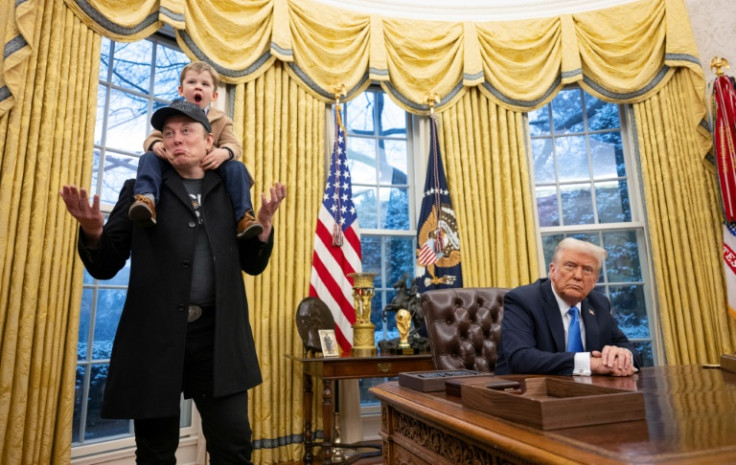Why Is Donald Trump Mum Amidst Elon Musk 'Attacks'?
Musk's sharp attack on a major bill sparks questions about Trump's quiet stance and political strategy

In a political landscape already brimming with tension, Elon Musk's recent outbursts against Donald Trump's flagship legislation have added a new layer of uncertainty. Musk's sharp criticism of the so-called 'big beautiful bill' has left many wondering why the former president remains silent.
On Tuesday, Musk took to X to denounce the bill, calling it an 'outrageous, pork-filled' piece of legislation. He argued that it would massively increase the US budget deficit—by an estimated $600 billion (Around £ 442 Billion) in the next fiscal year—and burden American citizens with unsustainable debt. Musk's comments were pointed and direct, signalling a break from his previous support for Trump's policies.
He also warned that the bill's passing would push the national debt to around $2.5 trillion (roughly £1.8 trillion), a figure that alarms fiscal conservatives. His stance aligns with some Republican senators, like Rand Paul, who oppose raising the debt ceiling and fear the long-term economic consequences.
The Political Fallout and Trump's Silence
Despite Musk's vocal disagreement, Trump has not issued any formal response. When asked about Musk's comments, White House spokesperson Karoline Leavitt stated, 'The president already knows where Elon Musk stood on this bill. This is one big, beautiful bill, and he's sticking to it.' Her comments suggest that Trump remains committed to the legislation, which he refers to as his 'greatest' or 'biggest' achievement.
This silence is noteworthy because Trump is usually quick to counter criticism. Historically, he has not hesitated to confront opponents or critics publicly. Musk's open rebuke, therefore, leaves an unusual gap in the usual back-and-forth. Some analysts believe Trump's reticence might be strategic, perhaps aimed at avoiding escalation or maintaining a united front within the Republican Party.
Possible Reasons for the Lack of Response
One reason could be that Trump prefers to keep the focus on the bill's supposed benefits, despite internal disagreements. The legislation, which includes significant tax cuts and increased defence spending, is a priority for Trump and his allies. A public spat with Musk—who has been both a supporter and critic—might undermine the message that the bill is essential for America's economic future.
Another factor might be Musk's recent departure from the government's inner circle. Musk ended his role in the Trump administration on 31 May, after working closely with the White House for 129 days. Since then, he has returned to wielding his influence through social media, often expressing opinions that diverge from government stances.
Furthermore, Musk's criticism might be seen as a personal rebuke rather than a strategic political move. Musk has previously voiced his displeasure with policies that threaten his businesses, especially Tesla's electric vehicle subsidies. His comments on the bill's impact on electric vehicle incentives could be a direct concern for Musk's corporate interests, adding a layer of complexity to his political stance.
Behind the Scenes
Sources suggest that Trump and Musk's relationship remains cordial, despite the public spat. House Speaker Mike Johnson mentioned he spoke with Musk on Monday, though Musk did not answer his call. Johnson described their discussion as friendly, implying that behind closed doors, there might be efforts to smooth over disagreements.
In a political climate where social media battles are common, Musk's outspoken opposition to the 'big beautiful bill' has caught many by surprise. His criticism exposes divisions within the Republican camp and highlights concerns about the bill's economic impact. Yet, Donald Trump's silence amidst these attacks suggests a deliberate choice to avoid escalation. Whether this will change remains uncertain, but for now, the former president appears content to let Musk's words speak for themselves.
© Copyright IBTimes 2025. All rights reserved.





















